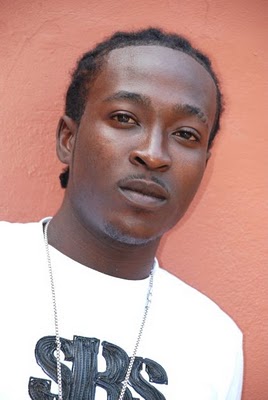Biography
Buju Banton is a controversial Jamaican dancehall singer who is best known for his notorious single “Boom Bye Bye,” which advocated violence against gays and inspired worldwide protest.
Mark Anthony Myrie, best known as Buju Banton, was born the youngest of 15 children on July 15, 1973 in the Kingston, Jamaica slum of Salt Lane. He started deejaying and “toasting” (speaking over music tracks) at age 13, and began recording music soon after. One of his biggest singles almost derailed his career: “Boom Bye Bye” advocated violence against gays, causing rabid protests against the performer, and forcing promoters around the world to cancel his concerts.
Early Life
Born in Kingston, Jamaica on July 15, 1973, Mark Anthony Myrie, better known as Buju Banton, had a love for music at an early age. “Buju,” a word for breadfruit often used for chubby children, was a childhood nickname. He later adopted Banton as a tribute to one of his early musical influences, deejay Burro Banton. By age 13, Banton was performing with local sound systems, and a chance meeting with producer Robert French led to his first recorded single, “The Ruler.” After taking a break to allow his voice to mature, Banton returned to recording with a rough, aggressive growl that would become his trademark.
Lyrical Controversy
Banton courted controversy in the early 1990s with his first major hit on the Penthouse label: “Love Me Browning” detailed his love of light-skinned women, and drew backlash from Jamaica’s large dark-skinned population. After recording a follow-up single, “Love Black Woman,” to appease his growing fan base, he found soon found controversy again with 1992’s “Boom Bye Bye.”
First recorded in 1988, when Banton was 15, “Boom Bye Bye” was re-released in 1992, and was reportedly inspired by an infamous man/boy rape case that occurred in Jamaica. The track advocated murderous violence toward gays, causing an international uproar. Gay and human rights advocates worldwide protested the song’s homophobic lyrics, and successfully pressured promoters in several countries to cancel Banton’s shows. The controversy created by the song almost destroyed Banton’s career.
Acclaimed Musical Career
Nineteen ninety-two proved to be watershed year in more ways than one. Banton broke Bob Marley’s record for the most No. 1 singles in a single year, with the help of his debut album, Mr. Mention.
Over his more than 20-year career, Banton has worked with some of reggae and dancehall’s most prominent producers, including Bunny Lee, Winston Riley, Patrick Roberts and Donovan Germain. The increasing violence of mid-1990s Jamaica inspired Banton and other leading artists to embrace Rastafari teachings in their music and reach out to youth. Banton’s hit single, “Murderer,” inspired by the brutal murder of his friend and fellow deejay, Panhead, touched on the personal toll of violence.
Banton won Grammy Awards for best reggae album in 2009 and 2011, respectively, for the albums Rasta Got Soul and Before the Dawn.
Criminal Charges
In 2011, Banton was convicted of conspiracy to possess with the intent to distribute cocaine, possession of a firearm in furtherance of a drug trafficking offense and using a telephone to facilitate a drug trafficking offense. He was sentenced to 10 years in U.S. prison.


